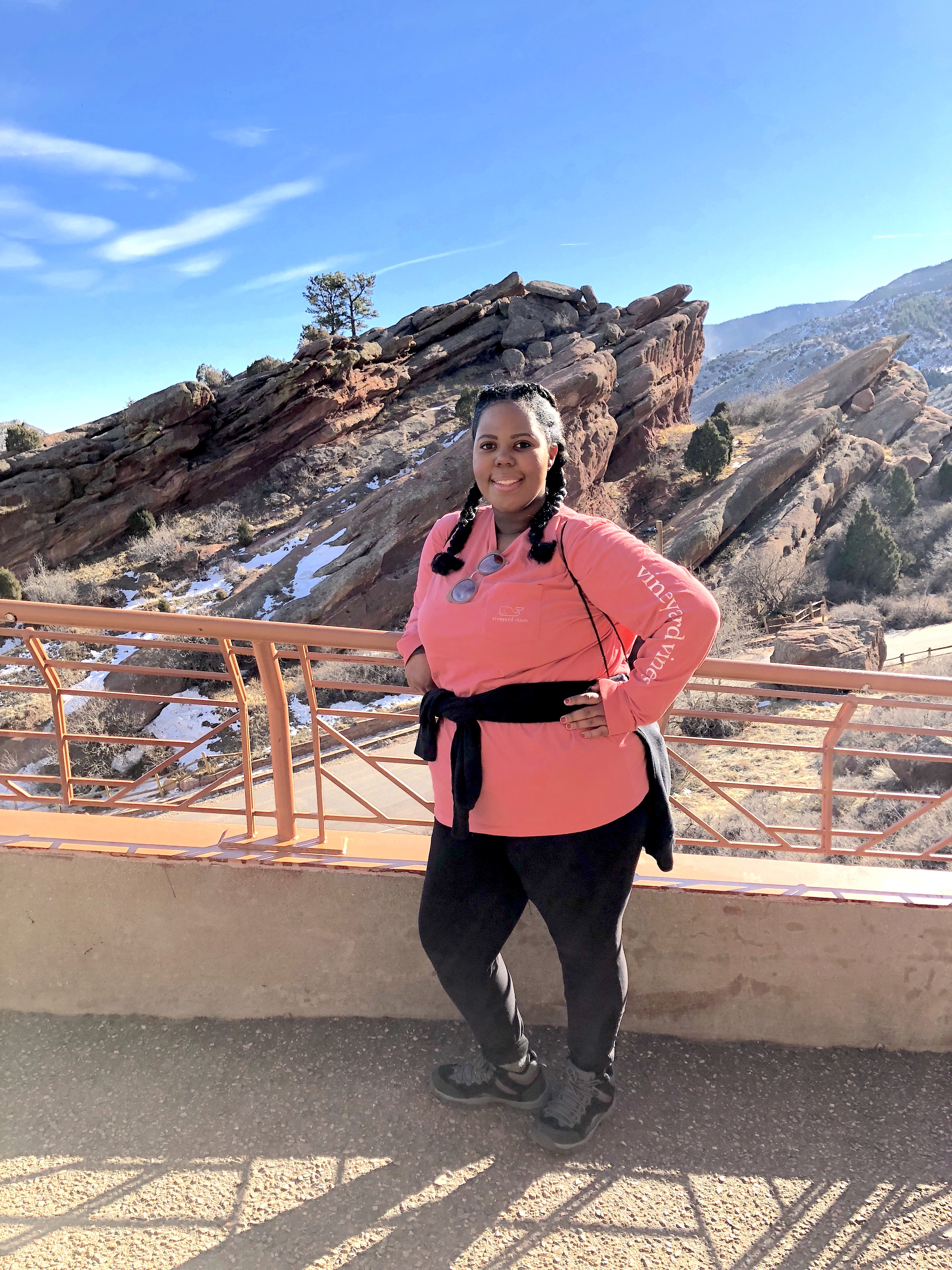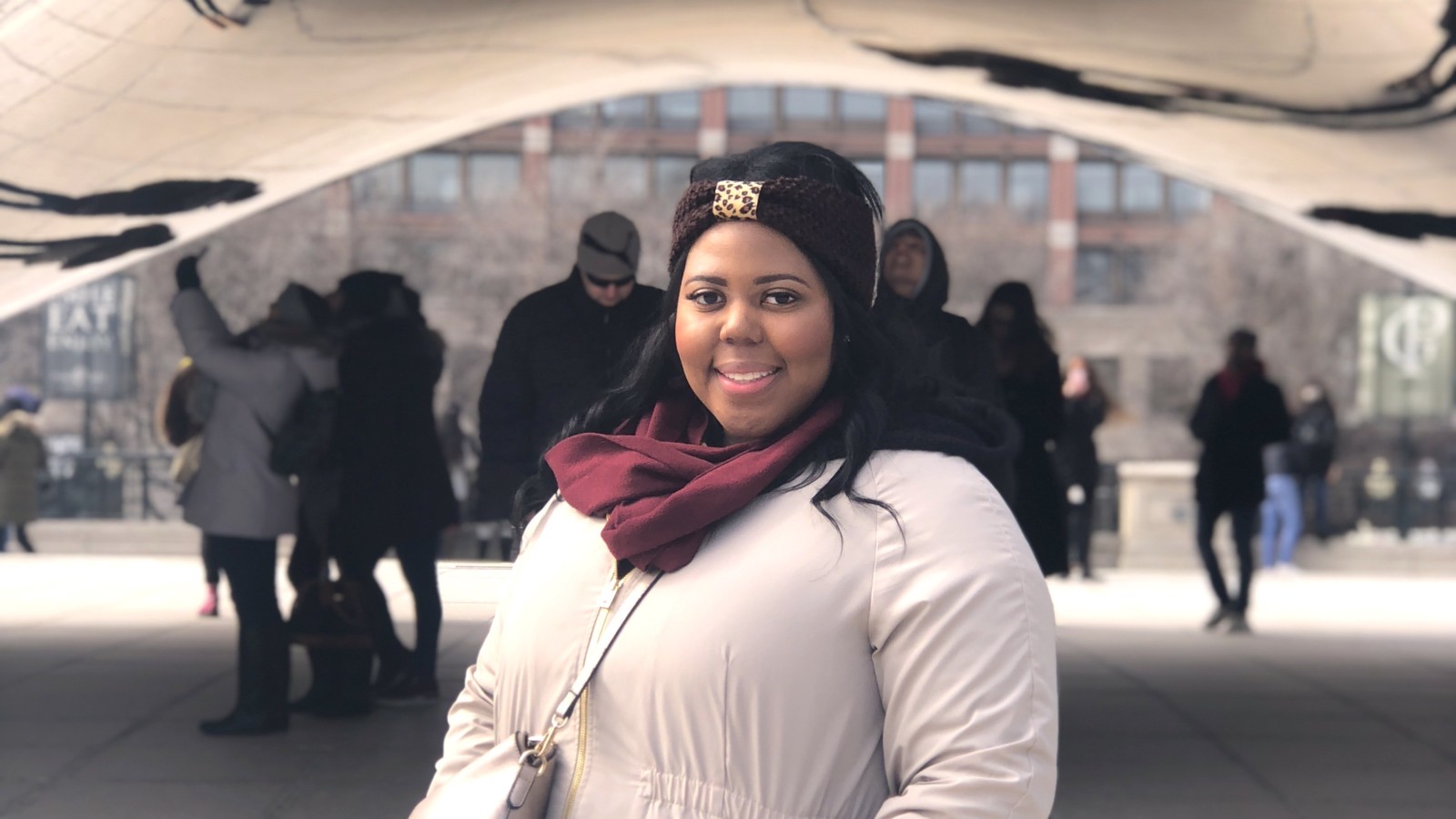“I just feel like it’s made me a better nurse by not working so much because you’re not tired and you’re able to catch things faster.”
Chanelle Dozier, RN, BSN (Houston, TX)
There are few things more exciting than the birth of a child. Chanelle Dozier was 10 years old when she noticed the swelling in her mother’s tummy. She was thrilled beyond belief to learn that she was going to be a big sister again — this time to twins. It was an exercise in patience for a fifth grader. “I just remember [my parents] waking up in the middle of the night and they said, ‘We have to go to the hospital.’ And then, a few days later, I was expecting them to bring home these twins, and they never did.” The twins had been born 25 weeks premature and couldn’t leave the hospital. They couldn’t even be named. They were stuck in some strange place called a NICU (Neonatal Intensive Care Unit).
The first time Chanelle went there, she didn’t know what to expect. She was taken aback to see tiny babies in glass cases with no names. It was a nurse who recognized her fear and guided her through it all. “The nurses explained everything to me.” Chanelle recalls, “That was my first time having to scrub in and really wash my hands for a good while. I had to wear gloves; I had to wear a smock. They were so tiny. The diaper was the size of the palm of my hand.” The nurses taught her to feed her siblings and aroused her curiosity about medicine. Most importantly, they supported and encouraged her family through this very challenging time, and Chanelle was inspired by the level of care the neonatal nurses provided her family. “I thought to myself, this is what I want to do.” She fell in love with the nurses, and she fell in love with nursing.
Chanelle started taking nursing courses in high school and spent three periods a day at the hospital. She followed her heart to nursing school and landed her dream job at Texas Children’s Hospital in the cardiovascular ICU. Life has now come full circle, and she’s become the surrogate parent for families where her inspiration for nursing began — in the neonatal ICU. “You get so close to the families and the babies. The babies almost become like your children.” This connection proved vital when the pandemic hit. In early March 2020, the local media was telling them that things were going to be fine. “I knew it was serious when the Houston rodeo shut down,” said Chanelle. Rodeo Houston is a two-week cowboy extravaganza that brings over 2,000,000 visitors and a quarter billion (with a capital “B”) dollars into the Houston area. Chanelle remembers changes happened quickly. “The hospital started putting in really strict measures. They started doing this thing where we were only allowing one parent to come to the hospital.” Families were forced to designate who would be able to see their child. It was difficult for parents. Chanelle strived to have a positive impact on families as the nurses had done for her. She made sure the parents knew their baby was in the best care. She assured them that their child could feel their love, even from afar.

The pandemic affected every facet of Chanelle’s life. “I stopped visiting my boyfriend. I started stripping my clothes off in the garage and making sure I wiped my shoes down with bleach.” She was obsessed with cleanliness. “Oh, did I forget to wipe my badge?” She even washed her hands before she showered. She wanted to be a barrier between the disease and the people she loved. Chanelle and her co-workers strategized on ways to sanitize everything to avoid transmitting the virus. “Just being extra meticulous so we wouldn’t bring this home to our families is my top priority and the same thing with my co-workers.” She stopped seeing her parents and started double rinsing her daily wash with bleach. She consciously avoids touching her phone at the hospital, and she has even stopped taking her shih tzu to the dog park because she heard dogs were contracting the virus. “We’ve done really well with not having COVID in our unit. We have an obligation to protect not only ourselves but our families and babies.”
Chanelle credits her pandemic success to her unique pastime. Cleaning and decluttering have kept her calm through COVID. “I know that it sounds strange, but I love cleaning, and I love organizing.” Chanelle uses great organizing tools her dad taught her for self-care. “I’ve been scared to venture out. Just making sure I have a nice, clean home, relaxing and decluttering my house.” Chanelle takes it one room at a time and watches YouTube for inspiration. “I literally type in phrases such as bathroom organization or bathroom vanity. I go on YouTube, and there are so many people who will show you how to declutter, stay organized and decorate. You can go the expensive route. Or you can go the Dollar Tree route. I just try to mimic what they show.” Chanelle says cleaning helps her feel safer. “It’s very calming when I have a nice clean house and a fresh candle going. I’m weird. Something about cleaning just relaxes me.” Chanelle recommends starting by getting rid of things you’re not wearing and items that are collecting dust. “Less clothes, less surfaces, less things to touch. Less things to collect viruses.”
One of the things that cluttered up Chanelle’s life was working double shifts. She stopped working overtime during the pandemic. “I just feel like it’s made me a better nurse by not working so much because you’re not tired and you’re able to catch things faster.” She used to work five or six days in a row, but now she just works her three shifts. “I have a way better work-life balance. This pandemic has provided a chance for everyone to take a step back and look at their vision board or look at their goals and see if they reached them, instead of just, go, go, go, go.” Working less has also made her a better co-worker. “They appreciate that you aren’t some tired, grumpy co-worker. I feel like just taking that time for myself and resetting has really been a great thing for me.” Claiming this time for calm and clarity has made Chanelle optimistic about the future. “Keep going. The light is almost there.”
#FirstRespondersFirst Microstep
When you’re feeling stressed, remind yourself why you became a healthcare worker in the first place.
If you joined this field because you want to help people, remembering that fact can help you to move through challenging moments with more resilience.
Chanelle’s story is part of “Unmasked: Profiles of Humanity and Resiliency,” a collection of stories from the frontlines published by the National Black Nurses Association (NBNA) in partnership with #FirstRespondersFirst. The NBNA offers therapy and wellness services through RE:SET, a free mental wellness program developed for Black nurses to help them RE:SET, recharge and widen their circle of support.


